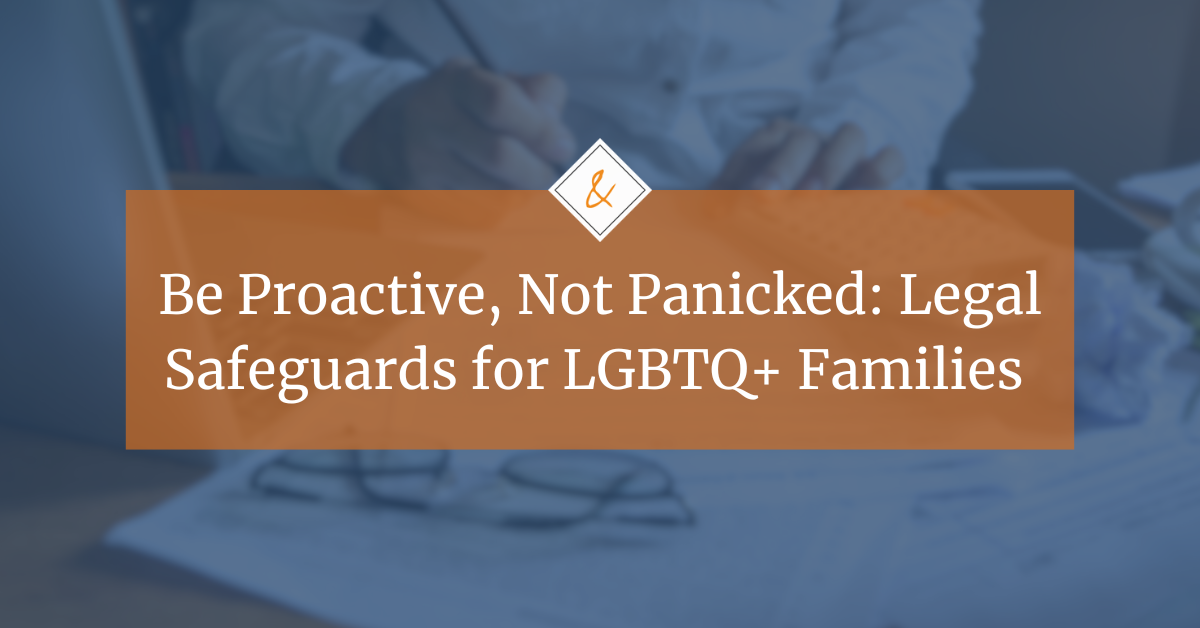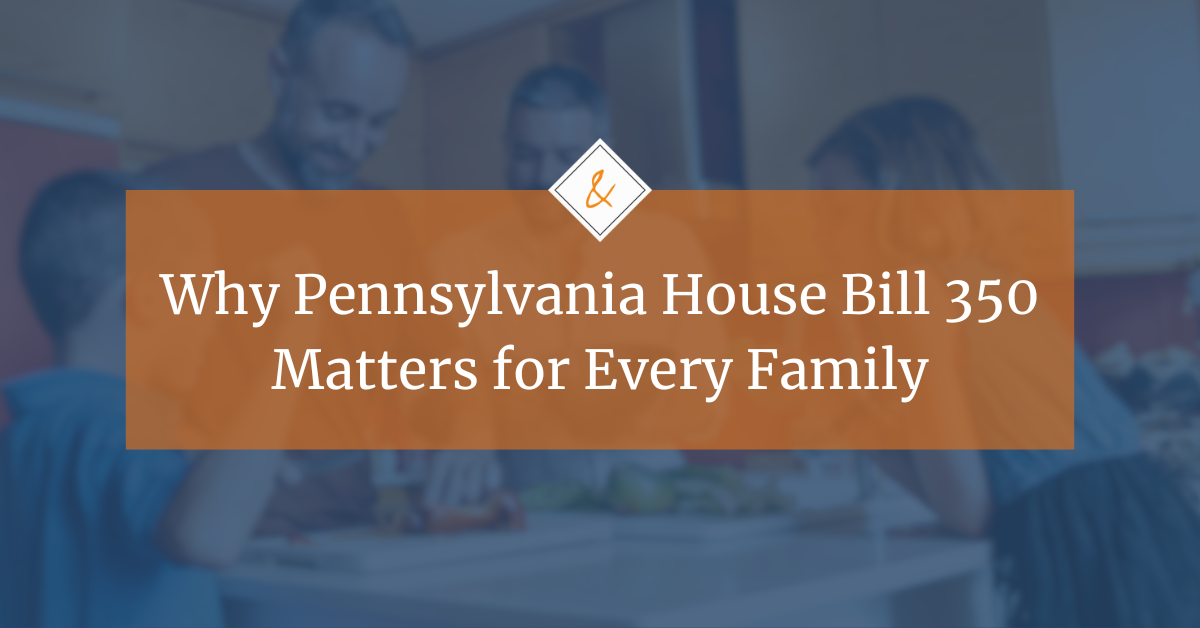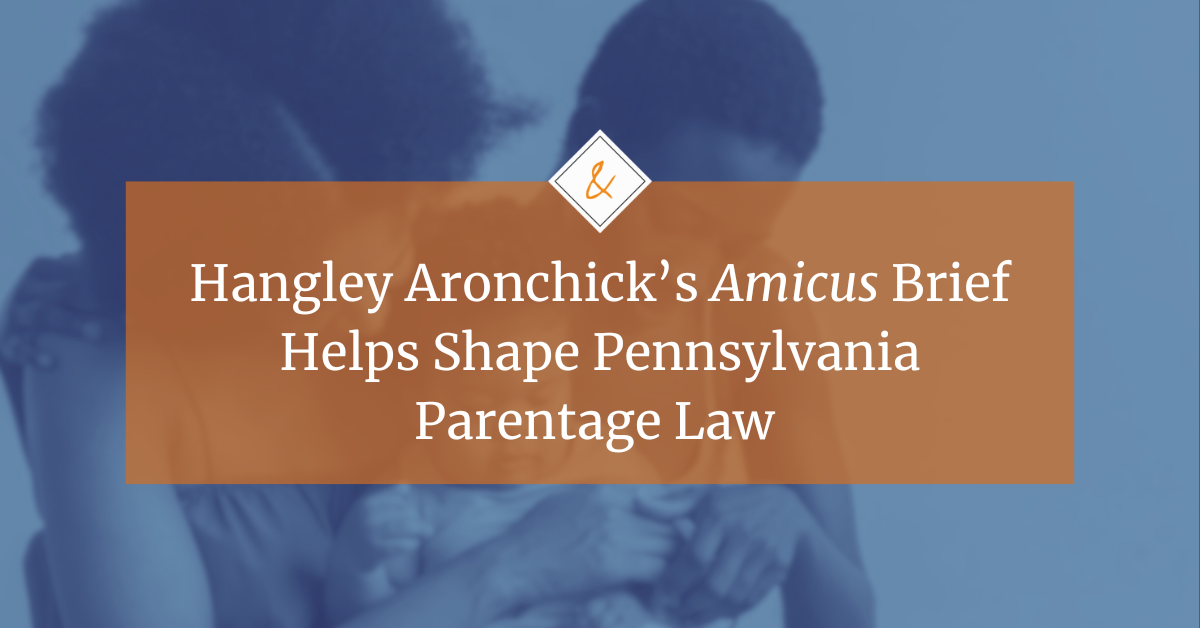As family law practitioners in Pennsylvania, we’re witnessing a significant transformation in the makeup and needs of the families we serve. Understanding these changes is crucial for providing effective representation and support. Shareholder, Helen Casale, and I recently gave a presentation to the Domestic Relations Association of Pennsylvania (whose members include child support professionals from every county in the Commonwealth) where we explored the evolving landscape of Pennsylvania families and how we are adapting our practices to meet their diverse needs in both support matters and otherwise.
Shifting Demographics
Pennsylvania’s family structures have undergone remarkable changes in recent years. Less than 58% of children born in the state now have married parents, reflecting a broader trend of deferred marriages and childbirth. The state’s population is also “graying,” with just over half of its 13 million residents between the ages of 25-65.
These shifts mirror national trends, including:
- The decoupling of parenthood and marriage
- Increasing diversity due to immigration
- A rise in same-sex marriages
- Longer life expectancies leading to longer-term marriages and more second marriages
- Growth in two-working-parent households
Generational Diversity
In our practice, we know that understanding generational differences is key to effective communication with our clients. The current population spans several generations:
- Baby Boomers (born 1946-1964)
- Generation X (born 1965-1980)
- Millennials (born 1981-1996)
- Generation Z (born 1997-2012)
Each generation has its own communication styles, values, and expectations, which can significantly impact family dynamics and legal proceedings. As legal professionals, we must adapt our communication strategies to bridge these generational gaps effectively.
LGBTQIA+ Families and Evolving Legal Landscape
The legal landscape for LGBTQIA+ families in Pennsylvania has seen significant progress:
- Marriage equality was established in Pennsylvania in 2014 with Whitewood v. Wolf, preceding the national recognition in 2015 with Obergefell v. Hodges. This is a case that we are proud to have worked on as volunteer counsel working with the American Civil Liberties Union.
- Cases like T.B. v. L.R.M. (2000) have established in loco parentis status for same-sex partners.
- Second-parent adoptions and custody rights for non-biological parents have been recognized in cases like L.S.K. v. H.A.N. (2002).
These developments have expanded the definition of family and parentage, requiring us to stay informed about evolving legal standards and precedents.
Redefining Parentage
The concept of parentage is expanding beyond traditional biological ties. We now consider:
- Acknowledgment of paternity/parentage
- Presumptions of parentage for children born during marriage
- Contractual and intent-based parentage
- In loco parentis status
Recent cases like Junior v. Glover (which remains pending before the Pennsylvania Supreme Court at the time of this post) will further refine the concept of parentage and associated parental rights and support obligations. As family law practitioners, we must be prepared to navigate these complex issues.
Inclusive Practices for Legal Professionals
To better serve diverse families, we as family law attorneys need to:
- Use inclusive language and respect preferred pronouns
- Be aware of cultural differences and potential biases
- Stay informed about evolving legal standards and precedents
- Advocate for policies that recognize and support diverse family structures
By embracing these changes and adapting our practices, we can ensure that all Pennsylvania families receive the legal support and representation they deserve, regardless of their structure or background.
As the landscape of Pennsylvania families continues to evolve, so must our approach to family law. By staying informed, adaptable, and inclusive, we can better serve the diverse needs of our clients and contribute to a more equitable legal system for all families.



